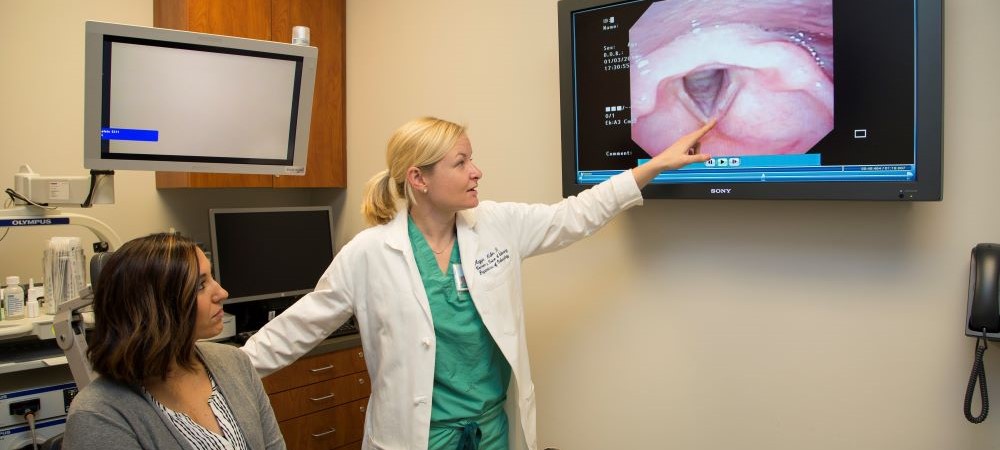Essential Signs You Should Visit a Sinus Specialist Today
Essential Signs You Should Visit a Sinus Specialist Today
Blog Article
Checking out the Field of Otolaryngology: What to Expect When You Consult an ENT
Otolaryngology, frequently referred to as ENT, encompasses the diagnosis and treatment of ear, throat, and nose conditions. For those experiencing relevant problems, seeking advice from an ENT expert can supply quality and alleviation. Recognizing what to expect during such examinations is essential for effective interaction and treatment. This overview will describe key elements of the ENT experience, including typical factors for gos to and the processes associated with diagnosis and treatment.

Comprehending Otolaryngology: A Summary
Otolaryngology, usually referred to as ENT (Ear, throat, and nose) medication, is a specific branch of medication that concentrates on the diagnosis and therapy of problems influencing these crucial areas of the human body. This area encompasses a large range of problems, consisting of those pertaining to hearing, equilibrium, respiratory system function, and speech. Otolaryngologists are trained to handle both medical and clinical therapies, using advanced techniques and technologies. Their expertise prolongs past typical conditions, resolving concerns such as allergic reactions, sinus infections, and hearing loss. Additionally, they play an essential function in the administration of head and neck cancers, offering complete treatment tailored to private patient needs. In general, otolaryngology continues to be necessary for preserving wellness and lifestyle in damaged people.
Usual Factors to See an ENT Specialist
Many individuals seek the experience of an ENT specialist for a variety of reasons, reflecting the varied nature of conditions that affect the nose, throat, and ear. Typical issues consist of persistent sinusitis, which commonly leads to persistent nasal congestion and facial pain. Allergic reactions and their linked signs, such as sneezing and itching, additionally trigger sees to these specialists (Sinus). Hearing loss, whether abrupt or steady, is another considerable reason for appointment. On top of that, people might seek assessment for throat disorders, including persistent hoarseness or ingesting troubles. Rest apnea, characterized by cut off breathing during rest, is often resolved by ENT professionals as well. Each of these problems highlights the importance of specialized treatment in handling intricate ENT-related health and wellness issues
Planning for Your ENT Visit
When planning for an ENT appointment, it is necessary to gather pertinent information and think about any kind of specific worries. People should put together a detailed clinical background, including previous ear, nose, or throat issues, surgical procedures, and present medications. Recording signs-- such as extent, duration, and frequency-- can give useful understandings for the ENT expert. In addition, people need to prepare a listing of questions they want to ask, making sure that all worries are resolved throughout the check out. Bringing along any relevant medical records or test outcomes can further aid the ENT in comprehending the individual's condition. Clients must verify their consultation details, including date, area, and time, to decrease any last-minute confusion. Proper preparation can improve the performance of the appointment and bring about better end results.
What to Anticipate Throughout the Examination
As the examination starts, the individual can anticipate to involve in a comprehensive discussion with the ENT professional regarding their signs and case history. The specialist will certainly ask about the period, frequency, and extent of signs and symptoms such as hearing loss, nasal congestion, or sore throat. In addition, the individual's previous clinical problems, medications, and any type of relevant family background will certainly be assessed, assisting the specialist in developing a full understanding of the client's health. The ENT may additionally ask regarding lifestyle aspects, such as direct exposure to irritants or allergens. This open discussion establishes a structure for the consultation, making sure that the person's concerns are addressed and setting the stage for any type of needed evaluations or referrals for treatment.
Diagnostic Examinations and Procedures in Otolaryngology
A series of analysis examinations and treatments are essential in otolaryngology to precisely assess and diagnose problems impacting the ear, throat, and nose. Usual examinations consist of audiometry, which gauges hearing feature, and tympanometry, assessing center ear pressure. Nasal endoscopy enables visualization of the nasal passages and sinuses, while laryngoscopy analyzes the throat and vocal cords. Imaging methods, such as CT scans and MRIs, supply comprehensive views of head and neck frameworks. Allergic reaction testing may additionally be carried out to recognize triggers for sinus or breathing problems. These diagnostic devices allow ENT specialists to develop a complete understanding of individuals' problems, making sure tailored and efficient management strategies. Proper diagnosis is necessary for successful treatment end results in otolaryngology.
Treatment Alternatives Provided by ENT Specialists
ENT experts offer a range of therapy choices customized to attend to certain problems affecting the ear, throat, and nose. These treatments vary from conventional strategies, such as medication and way of life alterations, to more intrusive procedures. Allergic reactions might be managed with antihistamines or immunotherapy, while persistent sinus problems might call for nasal corticosteroids or sinus surgery. For hearing loss, ENT specialists often recommend listening device or surgical treatments like cochlear implants. In instances of throat conditions, alternatives can include speech treatment or operations to get rid of blockages. In addition, they may supply guidance for managing sleep apnea, including the usage of CPAP devices or medical interventions. Generally, the goal is to boost patients' lifestyle with personalized treatment and effective treatment techniques.
When to Look For Follow-Up Treatment With an ENT
When to seek follow-up care with an ENT specialist is crucial for managing recurring signs and symptoms or complications connected to ear, nose, and throat conditions, acknowledging. Clients must take into consideration setting up a follow-up appointment if symptoms linger despite first treatment, such as chronic ear pain, nasal congestion, or throat discomfort. Changes in hearing, balance issues, or unusual nasal discharge may additionally require further analysis. Furthermore, if a person experiences negative effects from prescribed medications or has actually undergone a surgical treatment, follow-up treatment is essential to keep an eye on recuperation and deal with any problems. Timely appointments can assure effective monitoring of problems, stop possible problems, and offer tranquility of mind relating to one's health. Looking for follow-up treatment promotes proactive health and wellness administration in otolaryngology.
Frequently Asked Concerns

What Credentials Should I Seek in an ENT Expert?
When looking for an ENT specialist, one need to search for board qualification, appropriate experience, and strong person reviews. In addition, reliable communication skills and a thoughtful strategy can greatly improve the overall treatment experience.
Exactly how Do I Select the Right ENT for My Needs?
Selecting the right ENT specialist includes reviewing their credentials, experience, and individual evaluations (Otolaryngology). It is vital to ponder their communication style and method to therapy, ensuring they straighten with the individual's specific health requirements and choices
Are There Any Kind Of Dangers Associated With ENT Procedures?
The risks linked with ENT treatments might consist of infection, blood loss, anesthesia difficulties, and potential damages to bordering structures. Clients must review these threats with their doctor to understand private problems and assurance notified decisions.
Just How Can I Handle Anxiety Prior To My ENT Appointment?
To manage anxiousness prior to an appointment, people can practice deep breathing workouts, picture favorable end results, prepare inquiries in advancement, and seek support from buddies or family members, more info fostering a feeling of confidence and peace.
What Should I Do if I Experience Negative Effects From Treatment?
The person must quickly report them to their healthcare company if side effects from treatment take place. Changes to treatment or added interventions may be needed to guarantee security and efficiency in managing their problem - ENT. As the assessment begins, the person can anticipate to engage in a complete conversation with the ENT expert regarding their signs and clinical background. These analysis tools make it possible for ENT professionals to create a complete understanding of clients' conditions, ensuring tailored and effective monitoring strategies. ENT experts provide a selection of treatment choices tailored to attend to certain conditions affecting the ear, throat, and nose. When seeking an ENT professional, one should look for board accreditation, relevant experience, and strong individual evaluations. Choosing the ideal ENT expert involves assessing their credentials, experience, and client testimonials
Report this page